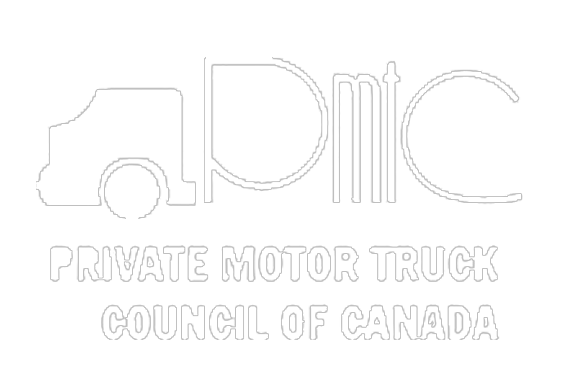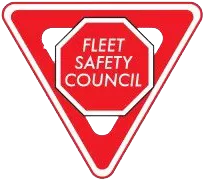In this article, I will be giving my opinion on what the next few months of electronic logging device (ELD) enforcement might look like. As you may know, ELDs are required in federally-regulated commercial vehicles in Canada as of June 12, 2021 [1]. However, Canada requires these ELDs to be certified through a third-party service provider, and as of the writing of this article no ELDs are certified.
Please note that the thoughts I will be sharing are completely my own and do not represent the views of any organisation. I will not be expressing any sort of frustration or anger at regulators; regulators have their challenges, and these are times when patience and understanding are crucial to industry-government collaboration.
However, many individuals in the North American trucking industry are surely experiencing anxiety over the lack of certified ELDs. The delay in certification and the unwavering compliance deadline have made business planning difficult; provinces have been left to themselves to decide how the enforcement of the deadline will take form.
I will attempt to alleviate some of this anxiety by explaining how I think enforcement of the Canadian ELD mandate will manifest itself. I can offer an educated opinion built upon my experience as a transportation safety professional, and I do not believe that law enforcement will be unreasonable in their approach to this difficult deadline.
But first, let me speak a little about how Canada’s ELD rule differs from that of the USA.
Canadian versus America ELD Certification
The USA ELD compliance date was December 18, 2017 [2]; like in Canada, the compliance date was well-advertised. While the USA’s and Canada’s hours of service differ and the technical requirements of ELDs in the two countries are not identical, the spirit of the change was the same: mandatory use of electronic devices will hopefully improve compliance with the hours of service rules.
A critical difference between the USA’s and Canada’s ELD rules is that Canada required ELDs to be certified by a third-party service provider prior to use [3]. This means that ELD manufacturers have to have their devices certified as compliant with Canadian requirements by a separate organisation. In the USA, ELD manufacturers could self-certify their products.
How the USA’s ELD Deadline Played Out
I was working in the transportation industry when the USA made ELDs mandatory. Carriers that had to comply with the deadline experienced great anxiety just like they are now in Canada. Some carriers went out and installed ELDs early; others waited until the deadline passed.
I can sum up the experience of being in the US-regulated trucking industry when the USA’s ELD deadline came and went in one word: anticlimactic. Yes, there were challenges related to learning to use the devices. Yes, the change was challenging for carriers. But, even though many of the ELDs did not work properly when the compliance deadline passed, commercial vehicle law enforcement turned out to be one of the smallest concerns for many companies.
ELDs were just as new to law enforcement as they were to the industry. Officers did not always know precisely how to inspect the devices, and it was my experience that Commercial Vehicle Safety Alliance (CVSA) inspectors were easygoing with drivers during inspections as long as they had no reason to believe the driver and/or carrier was using the ELD issue as an excuse to break the hours of service rules. I saw this first hand as a driver, and second hand as a safety manager.
In the USA, what was a largely-feared deadline from an industry compliance perspective turned out to be no big deal. So why am I sharing this? Because I believe that the Canadian 2021 ELD deadline will be experienced in generally the same way.
Progressive Enforcement in Canada
Canada’s well-intentioned independent certification system has created confusion around the enforcement deadline. Fortunately, the Canadian Council of Motor Carrier Administrators (CCMTA) has stated that “Jurisdictions plan to support the mandate through a period of progressive enforcement without penalties including elevated education and awareness until June 12, 2022” [4].
What this means to me is that the trucking industry should not expect roadside inspection penalties and out-of-service declarations as soon as the June 12, 2021 deadline is behind us. The hours of service themselves and all other rules must still be followed, but simply not having a certified ELD installed when there is currently no reasonable selection of devices on the market will not be the reason for penalties.
Progresssive enforcement likely means a period of time immediately before the deadline where law enforcement will simply tell drivers that ELDs will soon be required and that they need to be aware of the upcoming change. This initial focus on education will probably then be followed by stronger measures like verbal and/or written warnings once a selection of ELDs are available, and this will eventually be followed by full penalties for non-compliance. This is the approach I remember the USA taking in most places.
But don’t just take my word for it. The Government of Alberta has released a bulletin outlining the upcoming ELD deadline, and in it describes progressive enforcement as follows:
“A three phased approach [is] recommended: education and awareness, soft enforcement, and full enforcement. Public Drivers and carriers can expect to receive verbal and/or written warnings after December 31, 2021. If carriers are found to be operating without an ELD after June 13, 2022 when sufficient education and warnings have been provided and a reasonable number of certified ELDs are available in the market, the driver and/or carrier may be charged with an offence” under the federal hours of service regulations [5].
If you are wondering what the next year of enforcement of the ELD rule may look like, I would wager that it will be similar to what the above Alberta bulletin states.
Summary
The new ELD rule in Canada will be a major topic of conversation in the trucking industry over the next year. However, I do not believe that carriers need to worry about law enforcement causing major interruptions to their operations. There have been enough releases from industry associations and provincial jurisdictions that support an approach of progressive and soft enforcement [4, 5].
My advice to drivers and carriers is this: Do not use this progressive and soft enforcement as a way to further delay the installation and adoption of ELDs. Eventually, non-compliance with the ELD rule will damage driver driving records and will result in penalties issued to drivers and carriers. ELDs are coming one way or another, so once it is reasonable to expect the industry to adopt certified ELDs, get them installed and keep on trucking.
References
1 – “Electronic Logging Devices – What you need to know,” Government of Canada, accessed June 7, 2021, https://tc.canada.ca/en/road-transportation/electronic-logging-devices/electronic-logging-devices-what-you-need-know
2 – “Electronic Logging Devices and Hours of Service Supporting Documents,” Federal Motor Carrier Safety Administration, Department of Transportation, Federal Register Vol. 80 No. 241, accessed June 7, 2021, https://www.govinfo.gov/content/pkg/FR-2015-12-16/pdf/2015-31336.pdf
3 – “Registry of accredited certification bodies,” Government of Canada, accessed June 7, 2021, https://tc.canada.ca/en/road-transportation/electronic-logging-devices/registry-accredited-certification-bodies
4 – “Messages for Industry with Respect to the Federal Electronic Logging Device Mandate Coming into Force June 12, 2021,” Canadian Council of Motor Carrier Administrators, accessed June 8, 2021, https://www.ccmta.ca/web/default/files/PDF/ELD/ELDs%20-%20Messages%20for%20Industry%20-%20May%205%202021.pdf
5 – “Federal Electronic Logging Devices (ELD) Mandate,” Government of Alberta, accessed June 8, 2021, https://www.alberta.ca/assets/documents/trans-eld-faqs.pdf



















